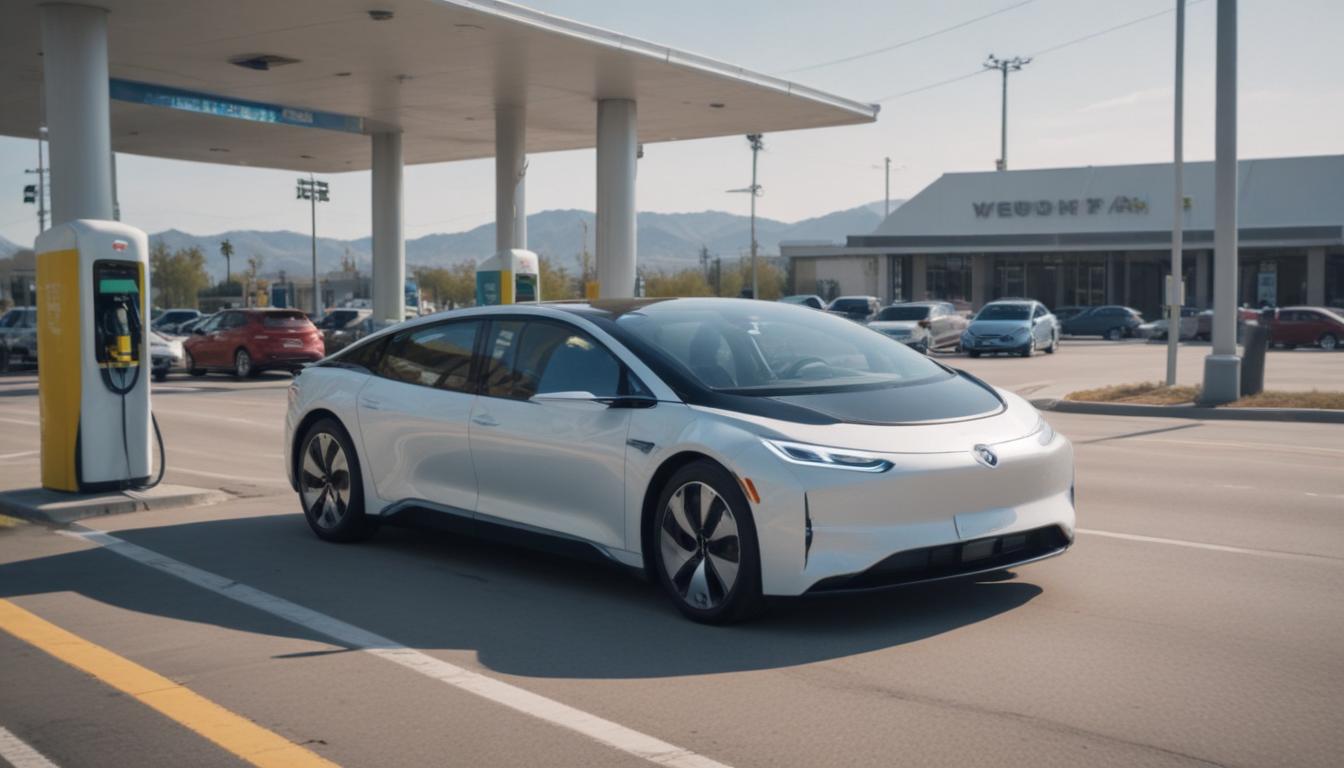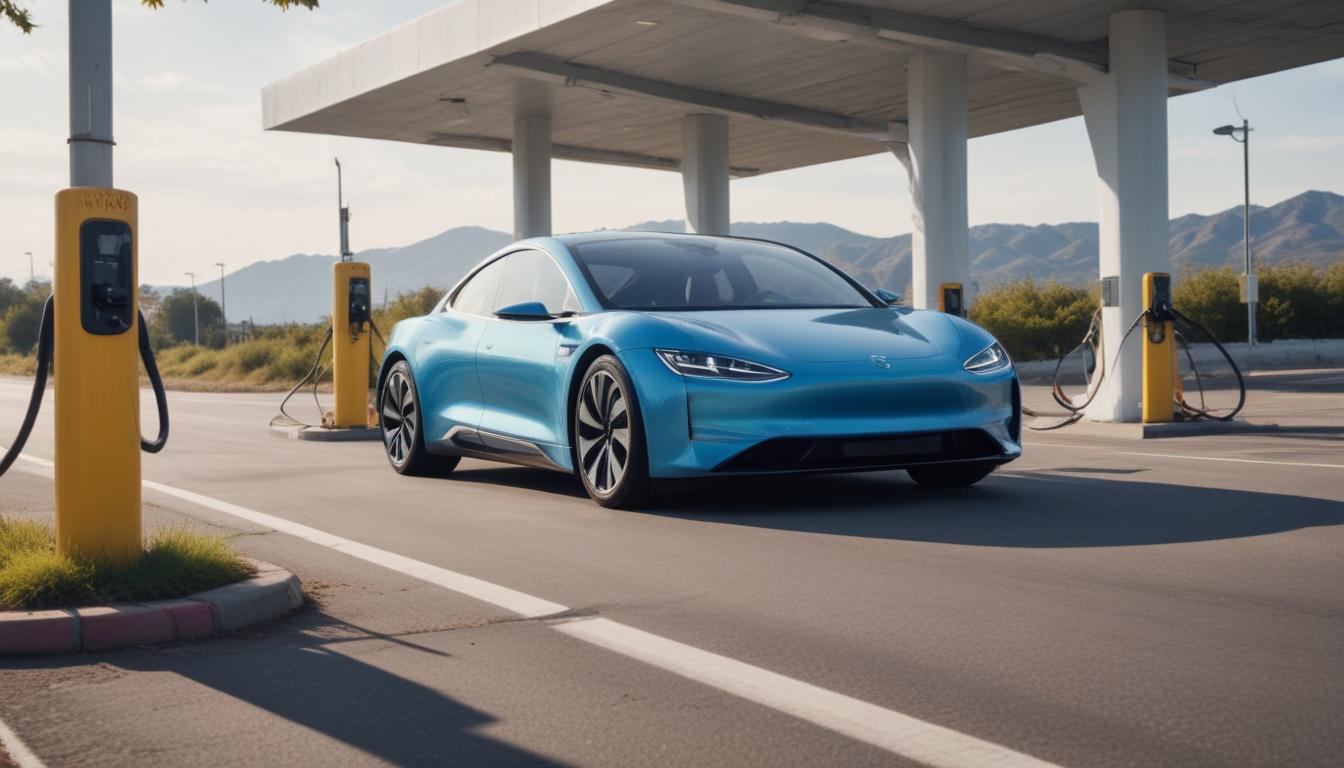Now Reading: The Future of Cars is Electric
-
01
The Future of Cars is Electric
The Future of Cars is Electric

Electric Vehicles Your Guide to the Future of Driving
Electric Vehicles The Future of the Automotive Industry
Tired of the weekly ritual at the gas station? Watching the numbers on the pump climb higher and higher can feel frustrating, leaving you wondering if there’s a smarter, more modern way to drive. You see more electric cars on the road, hear the buzz about new models, but the whole thing seems complicated. Are they too expensive? Will you get stranded with a dead battery?
The good news is that the shift to electric is not just a fleeting trend; it is a fundamental evolution of personal transportation. This guide will demystify the world of electric vehicles (EVs), breaking down the benefits, addressing the common concerns, and showing you why the future of driving is silent, powerful, and electric.
Why Electric Vehicles Are Gaining So Much Popularity
The hum of an electric car pulling away from a stoplight is becoming an increasingly common sound. This isn’t by accident. A combination of technological advancements, environmental awareness, and government incentives has created the perfect storm for EV adoption. Automakers are investing billions, moving from niche electric models to electrifying their most popular trucks, SUVs, and sedans. This massive industry shift signals one thing very clearly the internal combustion engine’s century of dominance is coming to an end.

Understanding the Core Benefits of EVs
Beyond just being new and different, electric vehicles offer tangible advantages that are convincing drivers to make the switch. These benefits change the very definition of car ownership.
Lower Running Costs
Imagine waking up every morning with a “full tank” without ever visiting a gas station. Charging an EV at home overnight costs significantly less than filling up a comparable gasoline car. Furthermore, electric motors have far fewer moving parts than internal combustion engines. This means no more oil changes, no spark plugs to replace, and no exhaust systems to repair. The savings on fuel and maintenance add up substantially over the life of the vehicle.
A Superior Driving Experience
If you’ve never driven an electric car, you are in for a surprise. The experience is unlike anything a gas car can offer. EVs deliver instant torque, meaning the moment you press the accelerator, you get 100% of the car’s power. This results in thrillingly quick, smooth, and seamless acceleration. The ride is also remarkably quiet and peaceful, reducing driver fatigue and creating a more serene cabin environment.
Positive Environmental Impact
For many, this is the most compelling reason to switch. Battery-powered vehicles have zero tailpipe emissions. This directly contributes to cleaner air in our communities, reducing smog and harmful pollutants that affect public health. While the manufacturing process and electricity generation have their own environmental footprint, the overall lifecycle emissions of an EV are consistently lower than their gasoline counterparts, and this gap widens as our electrical grids become greener.
Addressing Common EV Concerns
Switching to a new technology naturally comes with questions and hesitations. Let’s tackle the most common concerns head-on.
What About Range Anxiety
The fear of running out of power far from a charger, known as “range anxiety,” was a valid concern in the early days of EVs. Today, it’s largely a myth. The average new EV offers well over 250 miles of range, with many models easily exceeding 300 or even 400 miles on a single charge. Considering the average person drives less than 40 miles per day, most drivers will only need to charge their vehicle once or twice a week.
The Growing Charging Infrastructure
Charging an EV is more convenient than you think. The vast majority of charging happens at home with a simple Level 2 charger installed in your garage or driveway. For long road trips, the public charging network is expanding at an incredible pace. Fast-charging stations are now common along major highways, in shopping center parking lots, and in cities, allowing you to add hundreds of miles of range in the time it takes to grab lunch.
The Upfront Cost of an EV
While it’s true that the initial purchase price of an EV can be higher than a similar gas car, the gap is closing fast. Additionally, federal tax credits and state incentives can significantly lower the price. When you factor in the massive savings on fuel and maintenance, the total cost of owning an EV over several years is often lower than owning a traditional car.
The Road Ahead for the Automotive World
The electric revolution is just getting started, and the pace of innovation is staggering.
Innovation in Battery Technology
Researchers are constantly working on the next generation of batteries. Expect to see solid-state batteries in the near future, which promise even faster charging times, greater energy density for longer range, and improved safety.
Autonomous Driving and EVs
Electric vehicles provide the perfect platform for autonomous driving technology. Their computer-controlled systems integrate seamlessly with the sensors and software required for self-driving features, pushing both technologies forward in tandem.
Is an Electric Vehicle Right for You
The transition from asking “if” you will own an electric car to “when” you will own one is happening now. With improving technology, expanding infrastructure, and compelling benefits, EVs are no longer a niche product for early adopters. They are practical, fun, and cost-effective vehicles for the modern driver. The best way to understand the future is to experience it. We encourage you to test drive an electric vehicle and feel the silent, effortless power for yourself.


































